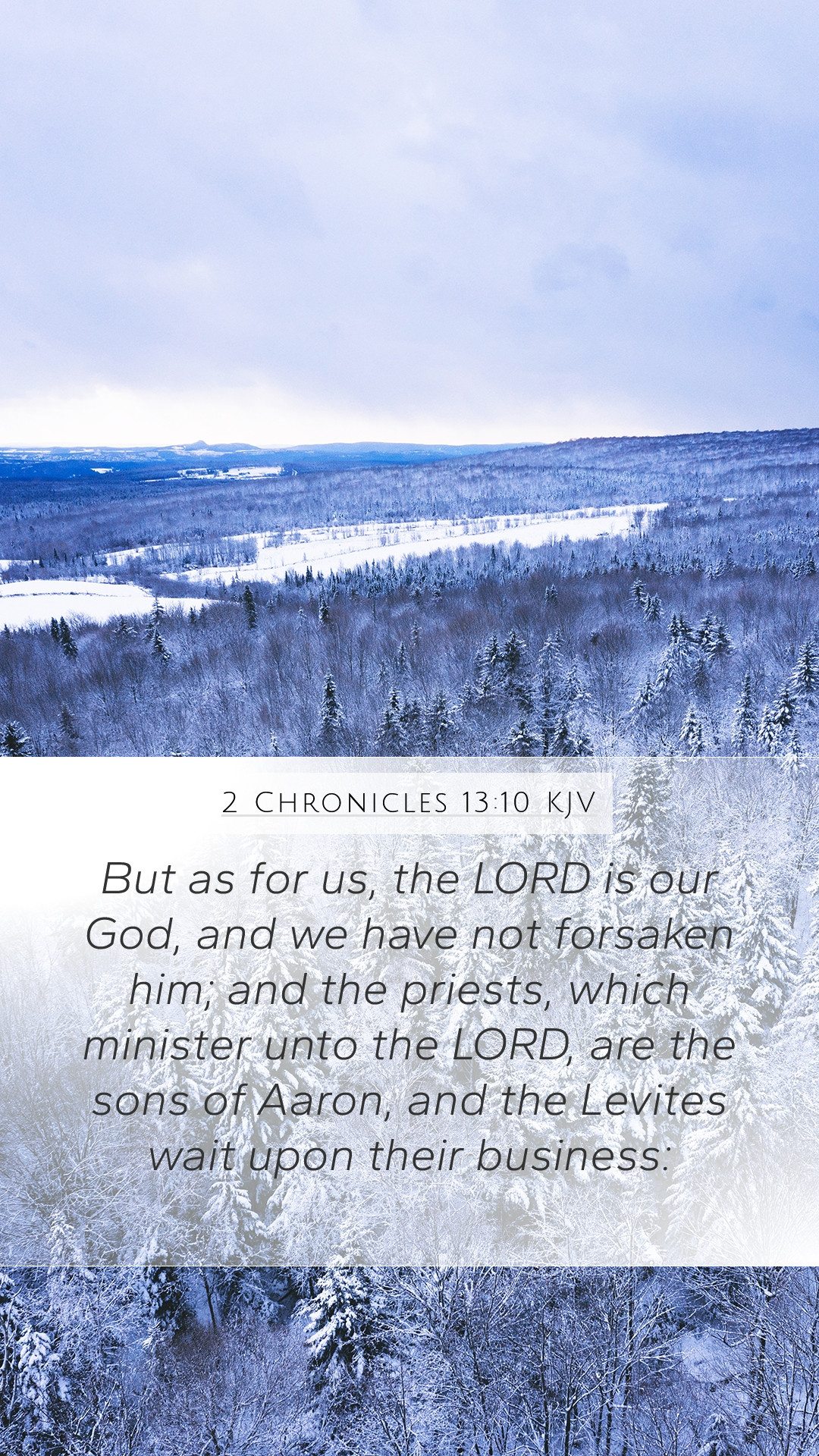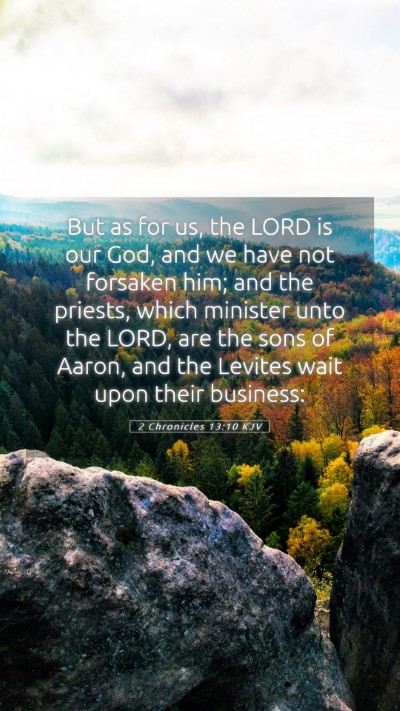Understanding 2 Chronicles 13:10
Verse: "But as for us, the LORD is our God, and we have not forsaken Him; and the priests who minister to the LORD are the sons of Aaron, and the Levites attend to their duties."
Bible Verse Meanings
This verse presents a declaration by King Abijah of Judah during his confrontation with Jeroboam, king of Israel. It emphasizes the commitment of Judah to the worship of Yahweh and distinguishes them from the northern kingdom of Israel, which had turned to idolatry.
Bible Verse Interpretations
The assertion that "the LORD is our God" reflects the covenant relationship that Judah maintains with Yahweh. Abijah contrasts this with Israel's abandonment of proper worship practices. The mention of the priests and Levites underscores the importance of the Levitical system instituted by Moses, which serves as a reminder of the continuity of true worship.
Historical Context of the Verse
Understanding this passage requires a brief look into the history of the divided kingdoms of Israel and Judah. After Solomon's reign, the kingdom split, with Jeroboam leading the northern tribes into a form of worship that included idolatry, while Judah remained faithful to the temple worship established in Jerusalem.
Insights from Public Domain Commentaries
- Matthew Henry: He notes that Abijah's statement reflects a strong affirmation of faith in God's continued presence and support for Judah. He underscores the importance of the Levitical priesthood in maintaining pure worship.
- Albert Barnes: Barnes emphasizes the significance of the royal line of David and the persistent faithfulness of Judah in contrast to Israel's idolatrous practices. He explores how this sets the stage for the legitimacy of Abijah's rule.
- Adam Clarke: Clarke highlights the theological implications of this declaration. He elaborates on the significance of the Lord’s protection over Judah due to their adherence to the covenant, suggesting that God's favor was tied to their worship practices.
Bible Study Insights
For those studying this verse, it is essential to grasp its broader theological implications—how faithfulness to God leads to divine favor and protection. In Bible study groups, this passage serves as a catalyst for discussions on the importance of maintaining authentic worship in contrast to cultural or societal pressures to conform to less faithful practices.
Application of 2 Chronicles 13:10 to Daily Life
This verse encourages believers to remain steadfast in their commitment to God, drawing parallels with our modern challenges. It challenges readers to reflect on their own spiritual allegiance and the importance of community worship with integrity.
Relevant Cross References
- 1 Kings 12:28-30 - Discussion of Jeroboam's idolatrous practices.
- 2 Chronicles 11:13-14 - The priests and Levites leaving their lands to follow Rehoboam.
- Exodus 28:1 - The establishment of the priesthood.
- Psalm 78:67-70 - God's choice of David and the significance of his lineage.
- Jeremiah 3:14 - God's call for His people to return to Him.
Conclusion
The examination of 2 Chronicles 13:10 exemplifies the crucial themes of fidelity to God and the integrity of worship practices. Through the insights gathered from well-respected biblical commentaries, it becomes clear that this verse transcends its historical context and speaks powerfully to contemporary believers about steadfastness in faith and the importance of a community that honors God's covenant.


